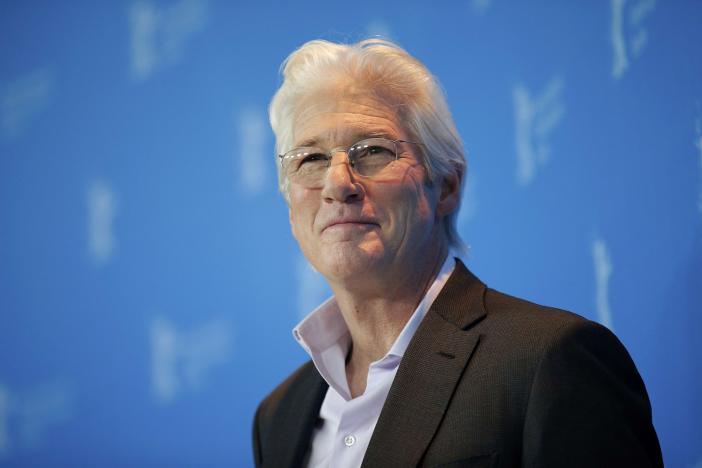
Since the beginning, the process has remained controversial due to the desire of Commerce and Trade Group (CTG) officers to sideline competitors from not only other service groups but also from within the group.
A number of petitions had been filed by the aggrieved officers in various courts to secure the fundamental right of appearing in competitive examination. The Economist Group and the Inland Revenue Service Group were initially left out but they were included in the selection process only after people went to courts.
Although the government has completed the selection process, at least one officer, who is among the top five of the 13 shortlisted candidates, is standing at the door of the Islamabad High Court (IHC) seeking justice.
Free trade - are MNCs driving local firms out of business?
Khurshid Ahmad Marwat, a grade-20 officer of the Inland Revenue Service, was denied foreign posting despite being at number five on the merit list, according to the documents seen by The Express Tribune and background discussions with officials of the Ministry of Commerce and candidates who became part of the selection process.
Foreign postings have always remained a source of attraction for Pakistani bureaucrats due to high financial rewards and the opportunity to get children admitted into reputed international educational institutions.
According to the Establishment Division’s policy of foreign postings, every officer, excluding for defence and foreign affairs, is entitled to two foreign postings in his/her career and there should be at least a three-year gap between the two postings. However, the Ministry of Commerce has allegedly flouted the policy by bringing in its own policy, resulting in court cases.
No government can ensure merit in foreign postings and the government of Prime Minister Imran Khan is also not an exception.
But some officers of the CTG have managed to manipulate the process, leaving behind many questions about the fate of merit in the country.
Selection policy
Secretary to former prime minister Nawaz Sharif, Fawad Hasan Fawad, had prepared balanced and objective policy guidelines for all appointments and postings in Pakistan’s missions abroad and on Pakistan’s seats in multilateral, bilateral and regional organisations, fora and bodies.
Subsequently, the Establishment Division notified the policy in February 2016. In light of the policy, the commerce ministry in March this year sought PM Imran’s approval of the policy guidelines for the selection, appointment and posting of trade officers, according to the commerce ministry documents. The premier gave his stamp of approval in April.
Selection process begins
On June 19, the Ministry of Commerce gave an advertisement in the press for the selection of trade ministers, consul generals, commercial counsellors, directors and commercial secretaries.
However, after the advertisement, the commerce ministry issued its policy guidelines and at least one of the guidelines was in violation of the Establishment Division office memorandum of 2016. “There shall be an intervening period of at least four years between the two tenures,” according to the commerce ministry guidelines. However, the gap is three years in the Establishment Division Policy.
The commerce ministry had set a two-month intensive training period for the selected candidates in its guidelines but undertook only three weeks of training.
It seems that the commerce ministry also did not consult with the Establishment Division before deviating from the selection policy. The Rules of Business 1973 bind the ministries to consult with the Establishment Division before bringing any policy, particularly when there is already a policy on the subject matter.
Consultation with the Establishment Division is binding as at least two judgments of the Supreme Court of Pakistan have declared the status of office memorandum as effective and binding as the statutory rules.
Market watch: KSE-100 rises 174 points in range-bound trading
Last month, the prime minister approved nine candidates for posting as commercial secretaries and 27 as commercial counsellors. The PM also approved a list of 13 candidates and out of those, nine were allocated stations for their postings as trade ministers and consul generals.
Out of them, Khurshid Marwat was not allocated a station because he did not meet the four-year cooling period criteria, according to the commerce ministry. This matter is now sub judice in the IHC.
Marwat had completed the term of his last posting in 2015 and returned to Pakistan on August 15, 2015. As per policy of the Establishment Division, he was eligible for foreign posting as three years have passed.
Where the commerce ministry denied Marwat’s posting, it accommodated CTG officer Husnain Haider by violating its four-year guideline. Haider, at number four on the merit list, had returned from foreign posting on July 4, 2015 - a month before Marwat. There was also a clear case of conflict of interest in the selection process. Some of the people who were involved in making the selection policy and guidelines have not only been selected for foreign postings but have also been given the stations of choice. A total of 12 officers of the Commerce Group were selected including three grade-20 officers.
Official version
The policy for the selection of trade and investment officers was developed by the Commerce Division in light of the prime minister’s directives to ensure merit and transparency, said commerce ministry spokesman Mohammad Ashraf.
He said that the policy was formally approved by the PM after consultation with the Establishment Division and a series of discussions and clarifications on different facets of the policy. But Ashraf did not directly answer the question of whether the ministry consulted with the Establishment Division.
“Since the old guidelines of 2016 were approved by the PM as the competent authority, the new guidelines, approved by the same authority, amended and overrode the old guidelines,” he added.
Defending the decision of selecting Hussain Haider, the spokesman said, “The policy of four-year intervening period applies to posts in Pakistan missions abroad and Haider was working in an international organisation (ECO Secretariat) and not in the Pakistan mission abroad.”
“Strict adherence to the policy and selection strictly on merit by the Ministry of Commerce has already been upheld by almost all high courts of the country where some disgruntled officers had challenged the policy and fairness of selection,” said Ashraf.
The spokesman said the recent selection process of trade and investment officers has been widely regarded as one of the most transparent and merit-based selection processes conducted in the recent past.
Published in The Express Tribune, November 3rd, 2019.
Like Business on Facebook, follow @TribuneBiz on Twitter to stay informed and join in the conversation.

1732271743-0/diddy-(45)1732271743-0-165x106.webp)















COMMENTS
Comments are moderated and generally will be posted if they are on-topic and not abusive.
For more information, please see our Comments FAQ